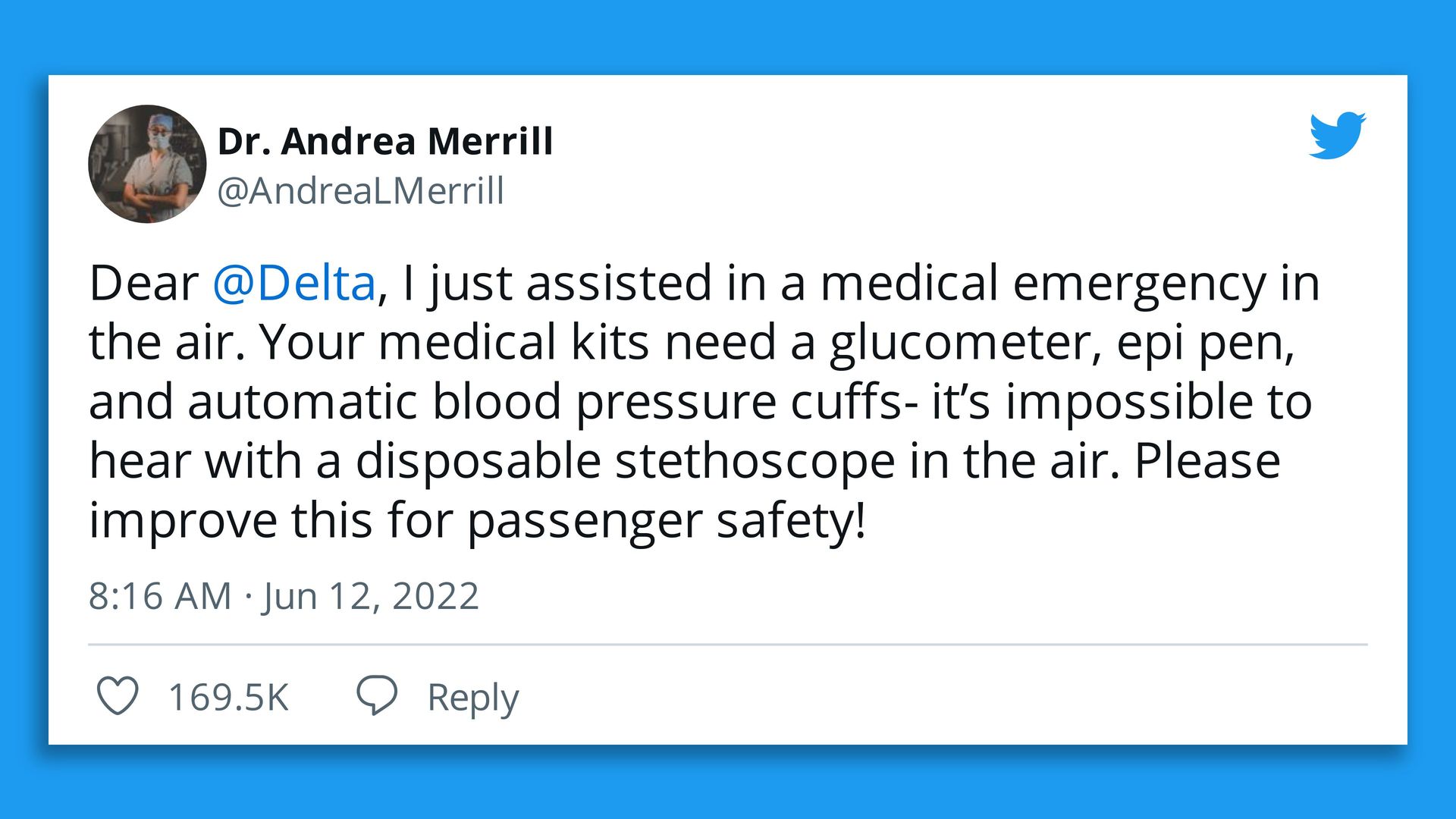| |
| |
| |
| Presented By Blue Cross Blue Shield Association |
| |
| Axios Vitals |
| By Tina Reed · Jun 13, 2022 |
| Welcome back from the weekend, Vitals readers. Today's newsletter is 997 words or a 4-minute read. 🚬 The FDA will hold virtual listening sessions today and Wednesday to collect public comments on a proposed ban on menthol cigarettes. - Also on tap this week: The Senate HELP Committee will mark up its FDA user fee reauthorization bill on Tuesday. The House passed its version last week.
|
| |
| |
| 1 big thing: The littlest Americans may finally get their shot |
 |
|
| Illustration: Maura Losch/Axios |
| |
| COVID shots may be days away from becoming available to infants and toddlers, with expert panels set to evaluate both Pfizer-BioNTech and Moderna pediatric vaccines this week. But it's unclear how much the number of vaccinated kids will move. Why it matters: For anxious parents of America's littlest kids, this is a big moment. - Children younger than 5 are the last group without access to the shots.
Driving the news: This week, both FDA and the CDC vaccine advisory boards will meet to discuss the vaccines which could ultimately lead to emergency use authorization and a recommendation. But even as the Biden administration prepares a rollout of the vaccines in pediatricians' offices and clinics nationwide, it's unclear how many parents will actually to get their kids vaccinated. - For starters, the Omicron variant already spread through many daycares and schools, leaving kids who contracted the virus with some level of immunity and reducing urgency for the shots.
- Many Americans want to put the pandemic behind them and face fewer rules like vaccine mandates, which might have prompted a quick response.
- Just one in five parents said they were planning to immediately get their young children vaccinated, according to a Kaiser Family Foundation survey released last month. At the same time, more than a third said they wanted to "wait and see" how other children responded before getting their own child vaccinated.
What they're saying: "I suspect if the vaccine was available two years ago, the vaccination rates would get much higher," Paul Offit, director of the Vaccine Education Center at Children's Hospital of Philadelphia and a member of the FDA advisory board, told the Philadelphia Inquirer. Yes but: Experts are urging parents not to "wait-and-see" on these shots, particularly since it could take time to administer the series before the return to school and potential fall surges. - "You can't predict when the next surge is, and the body needs time to mount an immune response," Annabelle de St. Maurice, a pediatric infectious-disease specialist at UCLA Health, told the Atlantic.
Go deeper. |
    |
| |
| |
| 2. The danger of heat waves |
 |
|
| Forecast high temperatures for Sunday, June 12, 2011, with boxes indicating record highs. Photo: Weatherbell.com |
| |
| Cities across the Southwest hit record-breaking temperatures over the weekend from a powerful heat wave that has also put nearly 100 million under heat warnings and advisories into this coming week, Axios' Ivana Saric writes. Why it matters: Heat waves are the deadliest type of weather emergency in the U.S. and they're growing in frequency and intensity due to global warming. Our thought bubble, via from Axios' Andrew Freedman: This extreme heat event is hitting normally warm places but with temperatures that are unusually hot for so early in the season. - Freedman recently wrote about why the Union of Concerned Scientists, an environmental research and advocacy organization, refers now refers to summer as "the danger season."
What to watch: While it was once described as a climate change issue, excess heat is increasingly being recognized as an immediate public health concern, as evidenced with the recent creation of HHS' Office of Climate Change and Health Equity and last year's release of the CDC's heat tracker. |
    |
| |
| |
| 3. Another "forever chemical" problem |
 |
|
| Illustration: Allie Carl/Axios |
| |
| Middle-aged women with higher concentrations of synthetic substances known as "forever chemicals" in their blood were at greater risk of developing high blood pressure, according to a study that tracked them for nearly two decades and was published in Hypertension. Why it matters: The per- and polyfluoroalkyl substances (PFAS) are used in everyday household items, such as certain shampoos, dental floss, cosmetics, non-stick cookware, food packaging and fabrics — and are basically everywhere. - "PFAS are known as 'forever chemicals' because they never degrade in the environment and contaminate drinking water, soil, air, food and numerous products we consume or encounter routinely. One study estimated that two of the most common 'forever chemicals' are found in most household drinking water and are consumed by more than two-thirds of Americans," said study lead author Ning Ding, a post-doctoral fellow in the department of epidemiology at the University of Michigan School of Public Health, in a statement.
Details: The study looked at data from more than 1,000 women ages 45 to 56 years old, from the Study of Women's Health Across the Nation-Multi-Pollutant Study. - The women had normal blood pressure when they enrolled in the study and were followed almost annually from 1999 to 2017.
- Women in the highest one-third concentrations of all seven PFAS examined had a 71% increased risk of developing high blood pressure.
The bottom line: The authors said more study is needed to examine the connection, but that the findings should illuminate the need for policies to reduce PFAs in consumer products and alert physicians to the role they may play in patients' cardiovascular health. |
    |
| |
| |
| A message from Blue Cross Blue Shield Association |
| Working together for more affordable care |
| |
 |
| |
| Blue Cross and Blue Shield companies are committed to making health care more affordable, but critical tax credits are set to expire for millions at a time when health care costs continue to rise. The solution: Congress must finish the fight to ensure Americans have access to affordable care. |
| |
| |
| 4. Tweet du jour |
 |
|
| Screenshot: @andrealmerrill (Twitter) |
| |
| Physician Andrea Merrill went viral this weekend detailing her experience with in-flight medical emergency preparedness on a Delta flight. - That included a response from Celine Gounder about her own concerns about the preparedness of airlines written nearly a decade ago.
- "The health and safety of our customers and people remains Delta's top priority, and as such, the medical and emergency equipment on all our aircraft go above and beyond the regulatory requirements," Delta said in a statement, adding it also relies on expert advice from its partners at STAT-MD.
|
    |
| |
| |
| 5. While you were weekending |
 |
|
| Over 3,000 panels of the AIDS Memorial Quilt were displayed in Golden Gate Park in San Francisco over the weekend. Photo: Justin Sullivan/Getty Images |
| |
- The Biden administration is eyeing a policy change to push tobacco companies to cut nicotine levels in cigarettes sold in the U.S. to nonaddictive levels, sources said. (Wall Street Journal)
- One of the longest-running travel restrictions of the pandemic, the COVID-19 testing requirement for inbound air travelers from abroad, ended Sunday. (CNBC)
- The CDC says airborne transmission of monkeypox has not been reported yet amid the ongoing outbreak. Yes but: Some experts say we shouldn't be too sure that means it's not happening. (New York Times)
- A new National Academies report says the CDC should create an effective and innovative quarantine station model to confront new challenges preventing the spread of infectious diseases. (National Academies)
|
    |
| |
| |
| A message from Blue Cross Blue Shield Association |
| Committed to making health care more affordable |
| |
 |
| |
| 13 million Americans currently receive a tax credit that helps lower their premiums. What you need to know: These critical tax credits are set to expire. Blue Cross and Blue Shield companies are working with Congress to ensure Americans have access to affordable care – for the health of America. |
| |
| 🚨 Reminder: Feel free to send me tips or comments by replying to this email or on Twitter @TreedinDC. |
 | It's called Smart Brevity®. Over 200 orgs use it — in a tool called Axios HQ — to drive productivity with clearer workplace communications. | | |









No comments:
Post a Comment